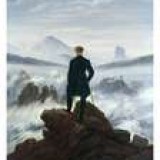Black and Amber
by Colm Jan 20, 2013
category :
Miscellaneous /
Misc. poems
|
You share the amber of fields of barley |
Did You Like This Poem?
Latest Comments
-
 13 years ago
13 years agoby L
Thank you for participating, Here is the comment I wrote for this piece in the contest.
This poem also focuses on the colors of the picture; I feel the golden color of the eye was the focal point of the first and second stanza. The author used " the ring on the finger of a hobbit" and if I am not mistaken the ring is golden, the barley as well as the field of maize has yellowish colors, and the author even took advantage of the color black on the last stanza... "the blackest of black holes" and it's interesting.. the black hole is found in the pupil of the eye within the image. I found that last line extremely creative, if I look at the picture, it does look like a black hole. It looks like the pupil is absorbing the colors of the picture.
The similes used within this poem were " as the ring of a hobbit," "like electricity, hot and white-golden," "as the one-way mirror of an interrogation chamber."
The tones of the poem as well as the ideas are good. I do have a nit pick, the part about" the industrial worker" I don't know how to relate it to the picture or to the colors. Though, that line gives this poem a personal touch.
My interpretation: it seems like the eyes of this someone were filled with many wonders that kept pulling the narrator in, yet the author could not see anything in them, at some point the author's attention diminished.
